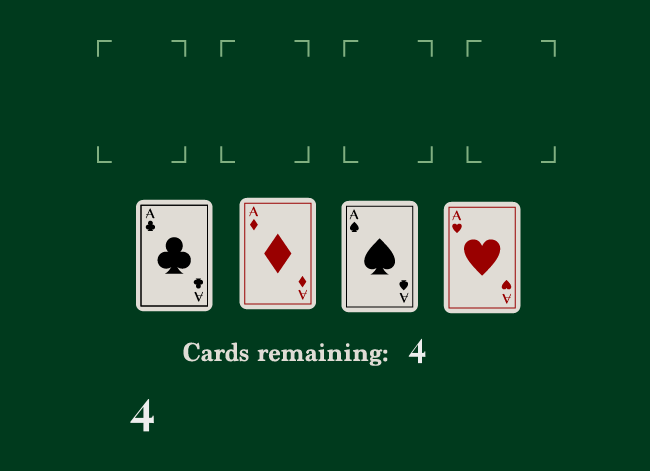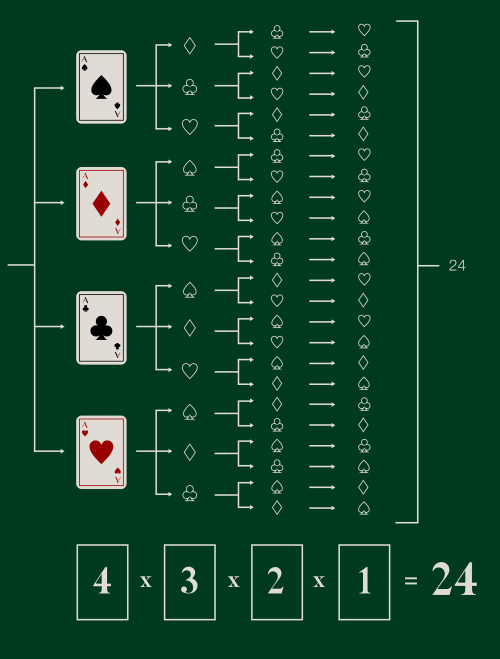
Evidentialism Factslap: There are more ways to arrange a deck of cards than there are atoms on Earth.
Think of your last card game – euchre, poker, Go Fish, whatever it was. Would you believe every time you gave the whole deck a proper shuffle, you were holding a sequence of cards which had never before existed in all of history? Consider how many card games must have taken place across the world since the beginning of humankind. No one has or likely ever will hold the exact same arrangement of 52 cards as you did during that game.
It seems unbelievable, but there are somewhere in the range of 8×1067 ways to sort a deck of cards. That’s an 8 followed by 67 zeros. To put that in perspective, even if someone could rearrange a deck of cards every second of the universe’s total existence, the universe would end before they would get even one billionth of the way to finding a repeat. This is the nature of probabilities with such great numbers. Though a long-time blackjack dealer might feel like they have shuffled thousands of cards in their lifetime, against a number this big, their rearrangements are irrelevant. There are simply too many ways to arrange 52 cards for any randomly organized set of cards to have repeated itself.
Don’t believe it? Consider how many ways you can order a deck of just four aces.

As you deal out the deck, each subsequent position in the row has one fewer card to select from. So the first spot has four options, the next spot has three, and so on until one card remains. This mathematical pattern can be used to calculate how many ways a set of things can be organized by multiplying these numbers together.

This literally exciting calculation is denoted by an exclamation mark and is called a factorial. As a rule, factorials multiply the number of things in a set by consecutively smaller numbers until 1. Since there are 4 cards in our mini-deck, there are 4 factorial or 4! numbers of ways it can be arranged, which equals 24. While this might not seem like a particularly large number, by the time you get to 52! (or 52x51x50 … ) you get a number with 68 total digits – an integer much larger than all the atoms estimated to be on Earth.
Now you might say, wait, 52 cards arranged in order from least to greatest cannot possibly be unique; you’ve probably even done it several times in your life playing Solitaire. And you’d be right. Card games tend to order decks in common ways, so you need to shuffle really well (about seven times using the “riffle” method) before you’re holding any deck which is truly one-of-a-kind


